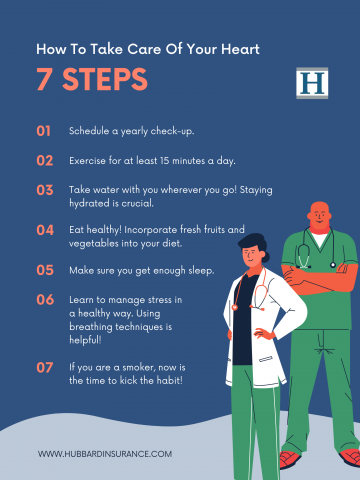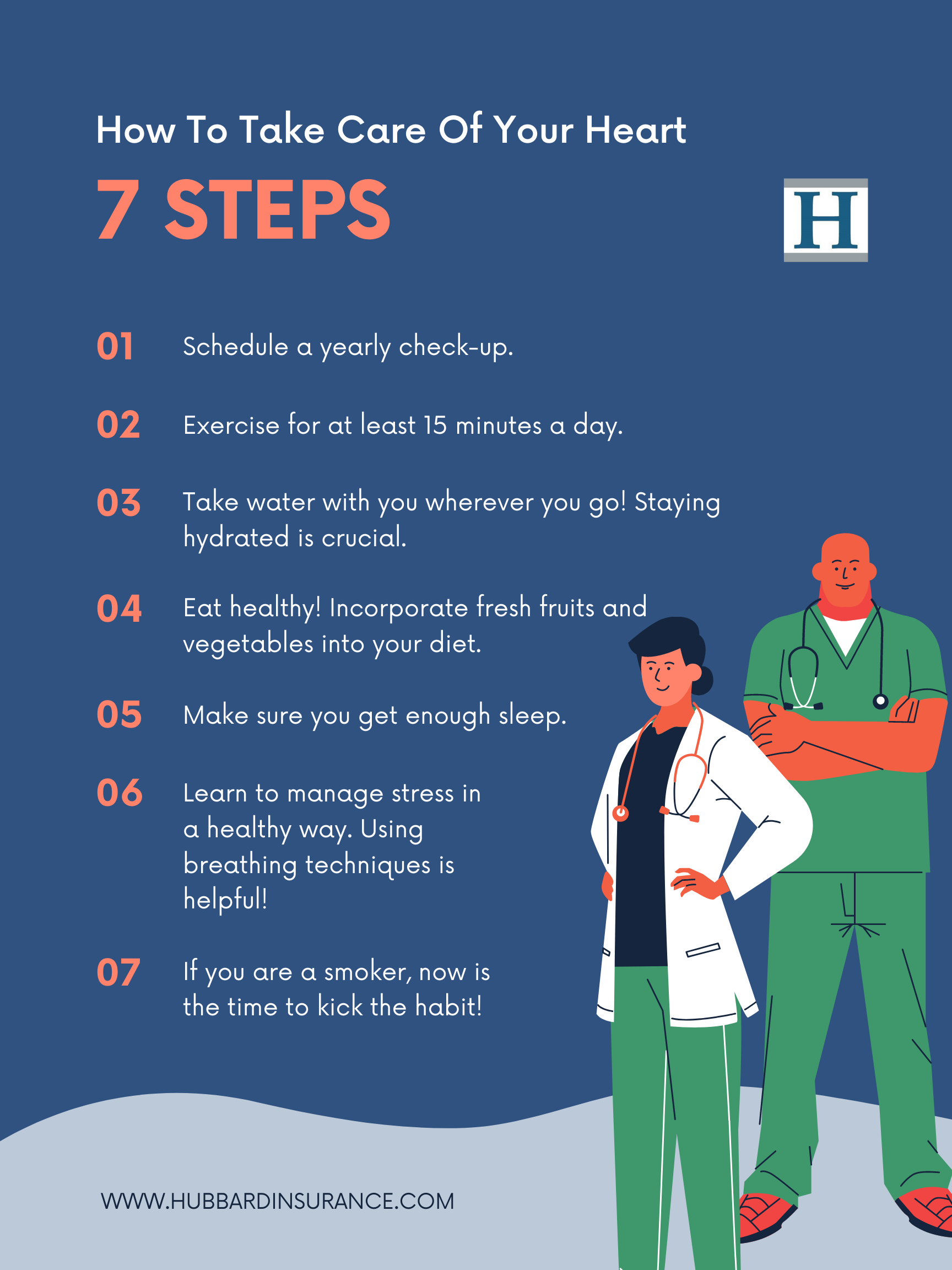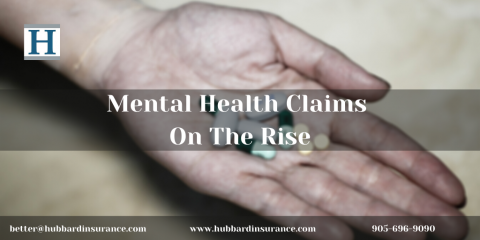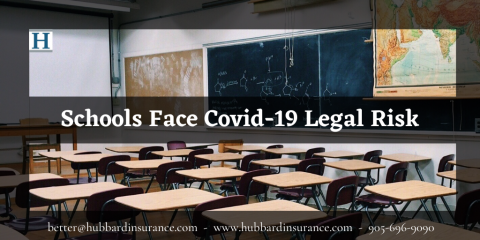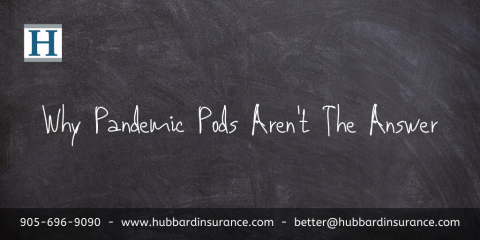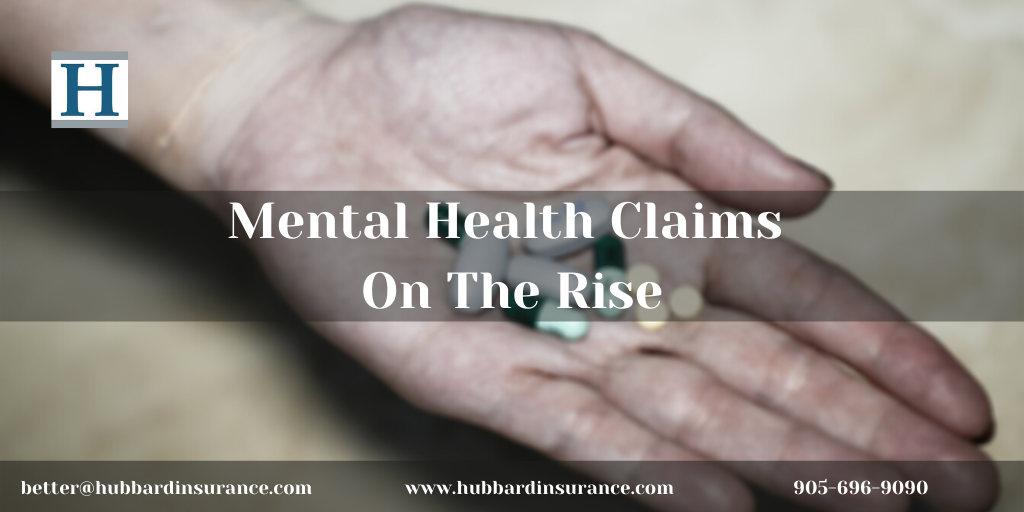
It is no secret that the impacts of the coronavirus are far-reaching and have been devastating for many. Not only have the effects been felt physically, but data suggests that there has been a major increase in claims for medications that treat mental health issues; particularly depression and anxiety.
In fact, according to Express Scripts Canada, claims for mental health related medication by the end of August of this year have almost surpassed the same type of claims for the entirety of 2019.
Laura Blair, a director at Express Scripts Canada, stated on a webinar that “For the remainder of 2020, there will be a heightened awareness on employee well-being.” She continued, “Depression is a condition that generally requires longer-term treatment, so these claims will persist and employers will need to consider holistic approaches to care.”
One of the main takeaways from this study has been that, when it comes to the aforementioned claims, there haven’t been any spikes. Instead, experts have seen a gradual increase. Erica Hatherly, a senior manager at Express Scripts Canada, concluded that “This might speak to the fact that depression has an enduring effect as it relates to the longevity of that self-isolation phase.”
Though the data suggests an even divide between male and female claimants, it is clear that those who are hit by this the most are aged between 20 and 35.
Hatherly further stated that “We also know that other factors contribute significantly to mental health, including financial and workplace stability, and those could also work into those differences that we saw.”
Another subsection of the population that has been affected greatly by the pandemic are those with asthma and those who are currently on chronic obstructive pulmonary disease medications. According to Benefits Canada, “supplies of salbutamol, which is used to treat both conditions, were allocated to hospitals, forcing manufacturers to deliver minimum quantities to pharmacies, which Blair said caused a domino effect.”
With so many people being affected in such a multitude of ways, it is important to take advantage of any and all available resources that might help. Employers are further incorporating mental health services into their benefits plans for the foreseeable future due to the nature of these issues.
While claims for medication are increasing, there isn’t any data to suggest that more people are seeing therapists to help with their anxiety and depression.
This could be for two reasons.
Firstly, it is possible that larger parts of the population are in fact seeking help for their mental health and that the data just hasn’t caught up with this.
However, it is more likely that though people require help, they do not have the resources to get that help. This is where employers must step in.
In the near future, any benefits plan that does not comprehensively cover mental health will be considered antiquated. The stigma around mental health is slowly dissipating and the time is now to act.
Often times, employers might be wary of adding further coverages to their existing plans due to the increase in cost. Mental health coverages, though, are already incorporated into general health care and therefore any additional costs are minimal.
If your organization does not comprehensively cover mental health, contact one of our licensed experts today at

We are very excited to announce the addition of Amanda McCormack to our Commercial Insurance Advisor Team this week!! Amanda comes to us with a vast background in client advocacy in the commercial insurance and risk management space, with significant experience in the specialized Transportation Insurance sector.
Amanda will be working with new and existing client partners of our office and I know that the rest the Hubbard Insurance Group team joins me in welcoming her with her with open arms.
Welcome Amanda, thanks for joining us!
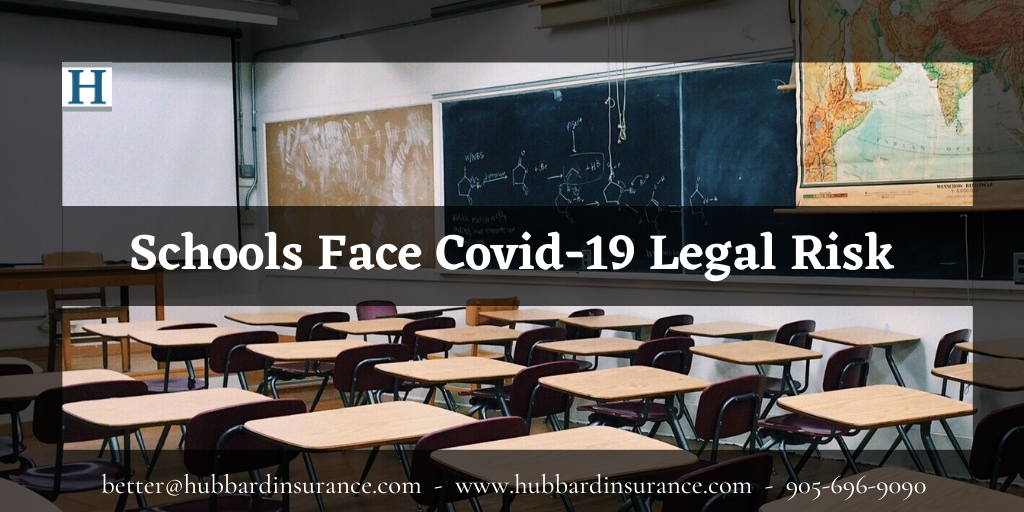
As schools begin to open up all over the country, some institutions have tried to find ways to mitigate their risks regarding Covid-19. According to Lyle Adriano of Insurance Business Canada, “While private schools could issue waivers to students’ parents to allow children to continue attending classes amid the COVID-19 pandemic, legal experts warn that those waivers are not enough to completely absolve schools from liability should students get infected.”
The belief is that private schools may require parents to sign a waiver before allowing a student to return to class. In theory, this would absolve schools from responsibility should a student contract Covid-19 on its premises. In fact, signing such a waiver would then place full responsibility on the parents themselves – meaning that the school in question would safeguard itself from legal repercussions.
However, legal experts suggest that these waivers would not be binding.
John Schuman, a child family and law specialist, stated that these waivers would be difficult to enforce especially if they are suddenly imposed on parents who have already paid full tuition and gone through with the enrolment process.
He states that “Where there’s less of that freedom, or (if) parents aren’t really free to fully understand what’s going on and to walk away if they need to, waivers become less enforceable.”
Similarly, Eric Roher (a senior lawyer), expressed substantial doubt on CTV News that parents would not sue the school even if they have signed a waiver.
Roher goes on to state that instead of signing a waiver, it would be better if parents were made to fully understand the risk their children face while at school. He said, “What I would prefer, to be honest with you, is that we spell out what the safety and learning protocols will be and have parents confirm that they’ve read and understood them. I think that’s a safer approach.”
Some parents have assessed these risks and, instead of sending their children back to school, have established Pandemic Pods in order to homeschool small groups of children. However, that would expose homeowners to great risk and insurance experts have strongly opposed this idea.
To better understand the best way to move forward, contact one of our licensed experts today at
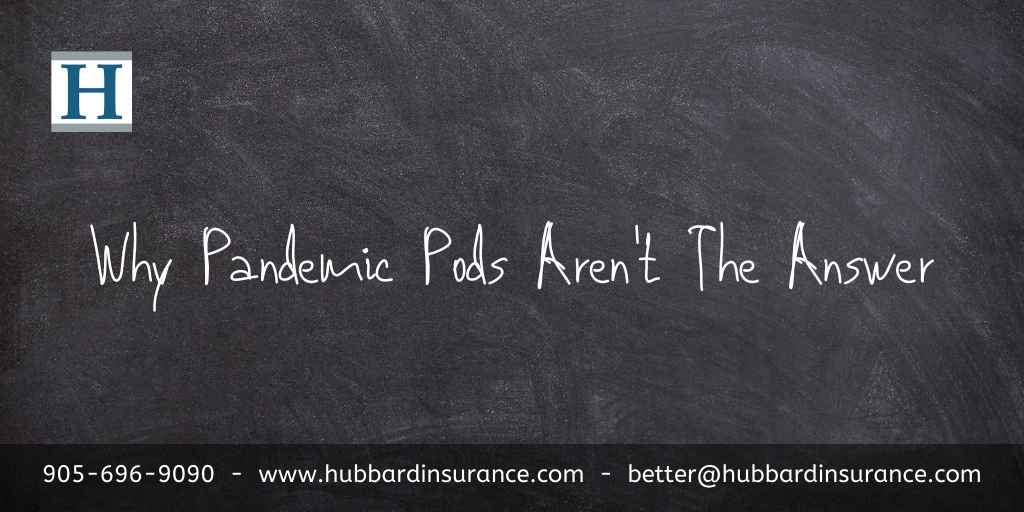
With the country slowly returning back to normal, schools are beginning to open up; however, this news isn’t welcomed by all sections of the population. Parents who fear for the safety of their kids in schools have decided to set up “Pandemic Pods” – environments to homeschool small groups of children.
The issue is, though, that this is not safe.
If a parent decides to turn their home into a Pandemic Pod, and someone in that pod contracts COVID-19, then that leaves the homeowners open to being sued as a typical homeowners policy does not cover that liability.
Kate Dangerfield of Global News reported that a Pandemic Pod “involves inviting a small group of children – a pod – into the house to learn together.” (Canadian Underwriter) She further states that “The parents, on rotation, can educate the children, or they can pool together funds to hire a tutor or teacher.”
Groups have been popping up all over Facebook to promote this initiative – with one such group called Learning Pods Ontario Facebook being established to “to find like-minded families who may not be comfortable sending their children to school and are looking for other options.” (Canadian Underwriter, Global News)
A typical homeowners policy has specific exclusions for the transmission of any communicable disease – with many now suggesting that COVID-19 would fall under this category.
In fact, the World Health Organization is also promoting a risk-based approach on any gatherings inside a household. In a recent Q&A hosted by the WHO, they stated that “Any decision to hold an event during the COVID-19 pandemic, no matter how large or small, should rely on a risk-based approach”, further adding that “This Q&A is focused on small, non-professional gatherings and events (i.e. birthday parties, children’s football games, family occasions). Precautions to consider include actions to prevent transmission between people, and where to hold the venue, and how it can be modified to make a safer environment. Canceling a planned event is an option that should always be considered, especially in case of non-essential events or when precautions cannot be implemented or adequately communicated.”
Ultimately, though some parents may believe that creating a Pandemic Pod is the safer option, all data suggests that it is not. Not only does it leave children and adults exposed to the virus, but it also exposes house owners to legal risks.
To learn more about how to handle your homeowners insurance in the coming months, contact one of our licensed experts today at 905-696-9090 or email us at
